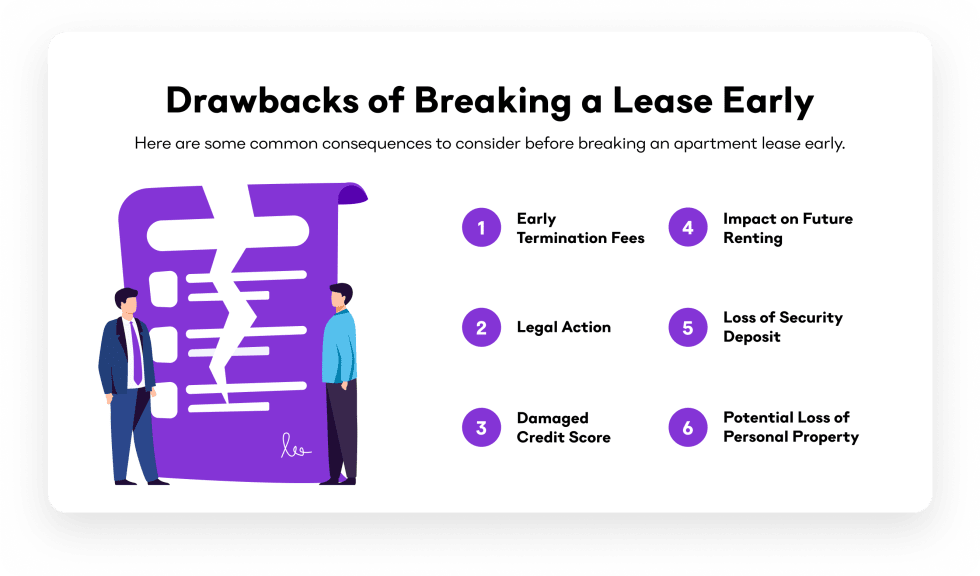What Happens if You Break a Lease? Understanding Your Options
What Happens if You Break a Lease? Understanding Your Options
Blog Article
The rental industry is always moving, with increased renters than ever rethinking their living situations. Queries around “can you break a lease” soared by around 70 % within the last year alone, reflecting a definite trend. Whether it's a work modify, unexpected economic issues, or a connection shift, your choice to separate a lease is not anyone to get lightly. Understanding the important factors at play can help you save from unexpected economic and legal headaches.

Early Terminations on the Increase
A recently available examination across significant US towns unmasked that around 18 per cent of tenants consider breaking their lease before the entire expression ends. That mirrors broader improvements in employment, lifestyle, and also mental wellness priorities. Information also shows that younger visitors, especially those outdated 18 to 34, are the absolute most likely to make a move mid-lease. If you're in that group, you're definitely not alone.
Financial Penalties Top the List
The most immediate issue renters have may be the economic impact. Survey benefits indicate that 65 % of landlords charge some kind of early firing charge, which could add the price of just one month's rent to the full total book remaining in your agreement. About 28 percent of renters interviewed said they underestimated these fees, ultimately causing shock expenses that collection straight back their budgets.
Concealed Costs and Other Costs
It's not merely about firing fees. Some landlords also withhold safety remains or charge for re-listing the property. Normally, renters may eliminate an additional 20 % of these deposit if the residence requires washing or repairs following an early on exit. Knowing these results can assistance with choice creating before providing notice.
Legal and Credit Consequences
Breaking a lease can follow you in more ways than one. Almost 22 % of renters who shattered their leases without discussing described a ding with their credit report. Landlords may deliver your unpaid amounts to selections, making it tougher to rent elsewhere or protected loans. Moreover, being sued for unpaid rent is a actual, if less frequent, risk.
Adequate Causes and Negotiations
Not absolutely all lease pauses are treated equally. The most commonly accepted factors include health and security violations, military arrangement, or substantial home damage from activities like normal disasters. Over fifty percent of tenants polled effectively negotiated using their landlords for a diminished cost or easier terms once they provided paperwork for such reasons.
The Connection Factor
Information demonstrates renters who communicated early and overtly using their landlords could save yourself an average of 35 percent on penalty costs. Setting expectations, sharing documentation, and arranging for an upgraded tenant can all lessen the fallout. The sooner you begin the discussion, the better your chances to decrease charges and protect your credit score.
What the Trends Tell Us
Lease-breaking is obviously trending upward. However, the danger of sudden expenses and legitimate trouble stays large for people who don't plan ahead. Reviewing your lease deal, understanding the fine printing, and seeking legal services if required are clever first steps.
Studying lease-breaking data may give renters a sharper photograph of what's at stake, which makes it simpler to consider their choices and avoid economic missteps. Being organized and positive changes what is actually a important setback right into a well-managed transition. Report this page